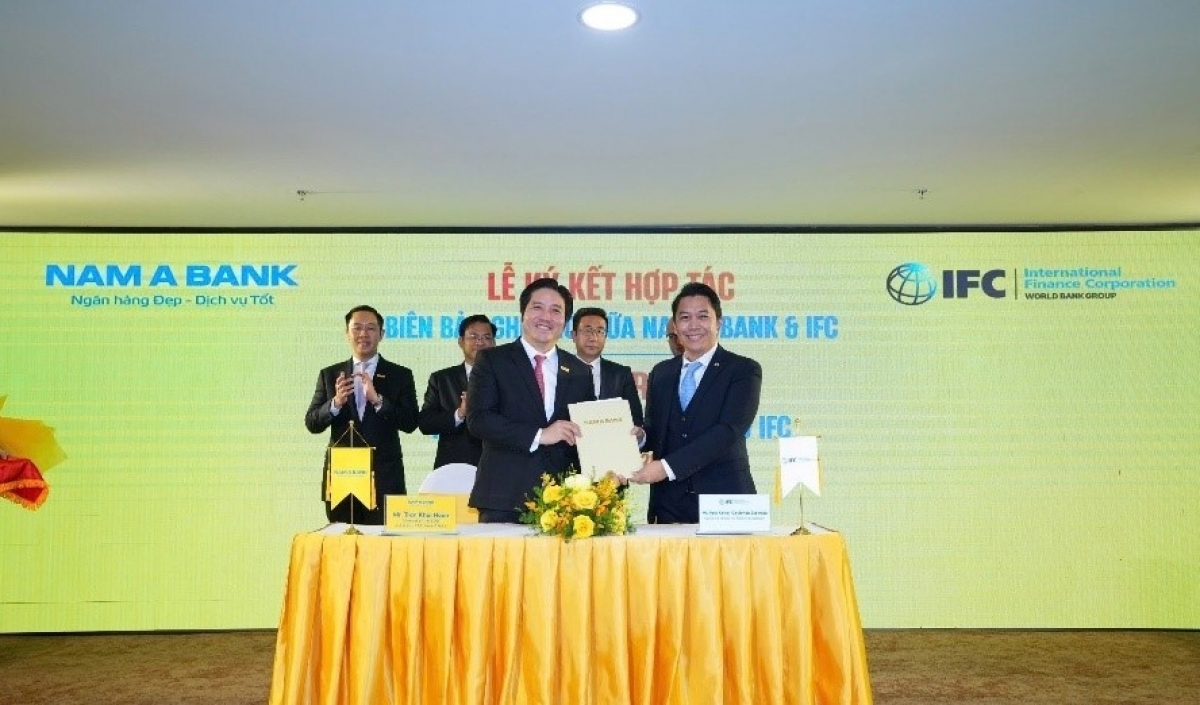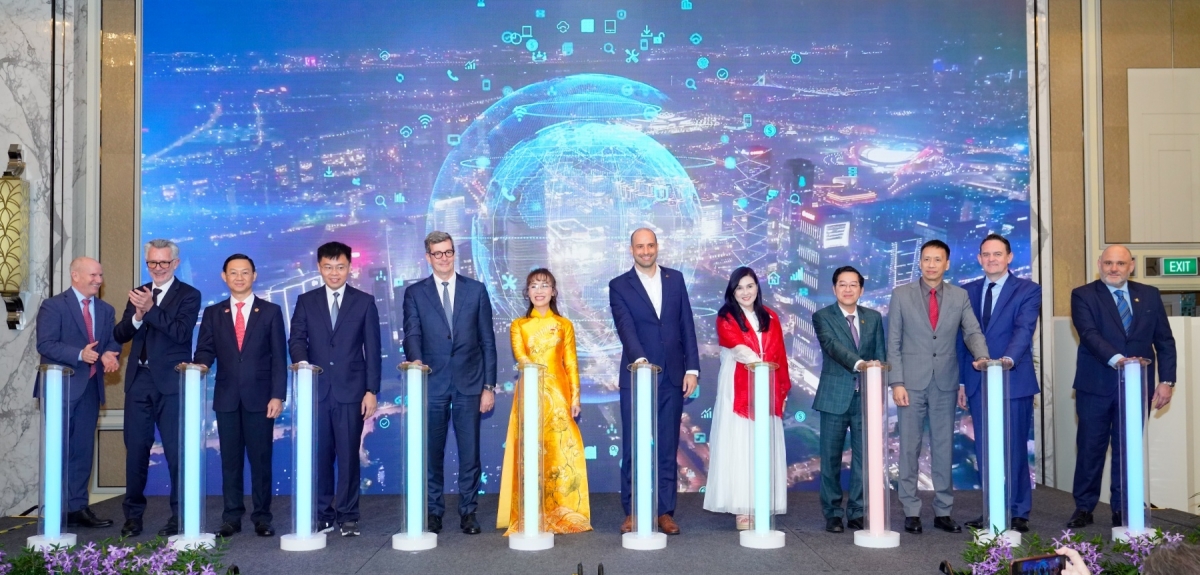INTERNATIONAL INVESTMENT
AND PORTAL
What are the priorities in your business strategies to leverage Ericsson’s technology leadership here in Vietnam?
 Rita Mokbel, head of Ericsson Vietnam
Rita Mokbel, head of Ericsson Vietnam
A key component of Vietnam’s development strategy is the digital economy, which will contribute 20 per cent of GDP by 2025 and 30 per cent by 2030. The next wave of socioeconomic development in Vietnam will be created through innovation, science, and technology, driven by the digital economy
Manufacturing, transport, logistics, energy, healthcare, and education are sectors that represent huge opportunities for 5G. Coupled with Vietnam’s National Innovation Centre, the government’s investment in sustainably growing the nation’s startup ecosystem will also contribute significantly to the country’s innovation capacity and the establishment of a thriving digital economy leveraging 5G as the enabling platform.
Vietnam is well poised to commercially expand 5G in the new year and derive the benefits of the latest, most advanced 5G products and solutions as well as benefit from the valuable knowledge and experiences from the 5G deployment across other markets in the world. It will pave the way for increased investments in smart manufacturing capabilities in Vietnam, supporting the government’s vision and focusing on driving an increased and sustainable annual productivity growth rate of 7 per cent by 2025.
Ericsson has been supporting Vietnamese mobile service providers with commercial 5G pilots since 2020, and is proactively working with mobile service providers to ensure Vietnam is at the forefront of 5G developments. We have the right 5G portfolio in place to enable our customers to deploy sustainable networks in the fastest and the most efficient way.
How can you bring your extensive experience to support Ericsson’s growth in Vietnam?
Under my leadership, we will continue to deliver on our commitment to support Vietnam’s sustained socioeconomic development and accelerated digital economy journey, driven by science, technology, and innovation.
As a long term and trusted strategic partner to Vietnam, Ericsson will continue to share its global 5G experience with customers in Vietnam, helping ensure successful coverage and capacity deployments with resilient network performance, scalability, simplicity, and security as a primary focus.
Since 2017, Ericsson has been supporting our service provider customers with mass 4G deployments and 5G commercial trials across the country, particularly in high-growth and industrial areas that will eventually benefit from smart manufacturing efficiencies and sustained productivity gains, enabled by Industry 4.0 and powered by 4G and 5G capabilities.
Working with our talented team here in Vietnam and working with mobile service providers in Vietnam, it will be our endeavour to ensure that the country stays at the forefront of 5G developments. We will leverage Ericsson’s technology leadership to contribute to Vietnam’s technological advancement and economic growth.
What are the factors required for Vietnam to successfully commercialise 5G?
Vietnam has a strong strategic focus on digital transformation across society, the economy, and government. This triple pillar approach is visionary and has Ericsson’s full support.
To enable commercialisation, the government will ensure adequate 5G spectrum availability for service providers, and the mobile operators will need to deploy 5G across the country, establishing the critical national digital infrastructure.
Industry, academia, and government collaboration will also serve to build up innovative 5G use cases that are relevant for Vietnam. For example, together with RMIT University in Vietnam, Ericsson is already today delivering training in 5G, the Internet of Things (IoT), AI, automation, AR/VR, edge computing, and blockchain to RMIT’s engineering, science, and technology students in Vietnam.
Could you make a comparison between Vietnam and regional countries in terms of the digital transformation process and 5G rollout?
The faster speeds, lower latency, and secure, real-time communications enabled by 5G will support Vietnam in becoming a digitally empowered society and realise its Industry 4.0 vision.
Socially, digital technologies provide opportunities to earn, learn and socialise, and lift people out of poverty. Universal and affordable connectivity is critical to the sustainable development of society, while driving sustainable economic growth and delivering innovative solutions across areas such as education, financial services, and humanitarian response.
5G will power Vietnam’s digital transformation. It is positively disrupting and transforming enterprises and enabling enterprise digital transformation at scale and speed. Digital transformation is providing extensive opportunities for creating new value, gaining competitive advantage, and enabling cost savings for enterprises.
Private networks are gaining momentum. By deploying their own private networks, for example, enterprises across sectors get access to guaranteed high-performing indoor and outdoor 5G cellular coverage, making it suitable for a range of uses - particularly in environments such as manufacturing, mining, airports/ports, education, retail, logistics, and other sites where security and reliable connectivity are critical.
The initial use-case of private 5G networks will be around gaining operational flexibility, efficiencies, and reliability, helping further improve Vietnam’s labour productivity growth rates towards the government’s target of 7.5 per cent per annum by 2030.
 Rita Mokbel appointed as head of Ericsson Vietnam
Rita Mokbel appointed as head of Ericsson Vietnam
Rita Mokbel was appointed as head of Ericsson Vietnam on November 13. Her new role will see her be responsible for driving the company’s business and overseeing its operations in Vietnam.



















